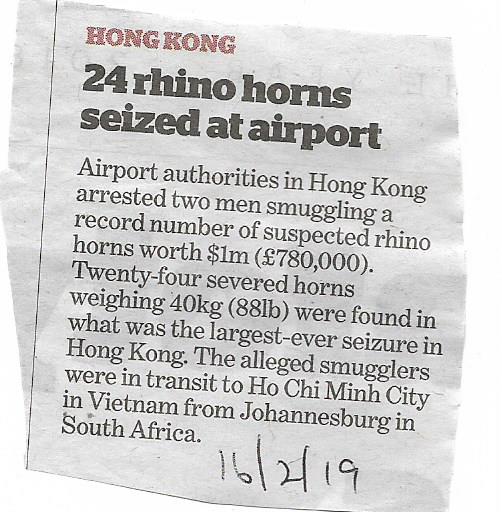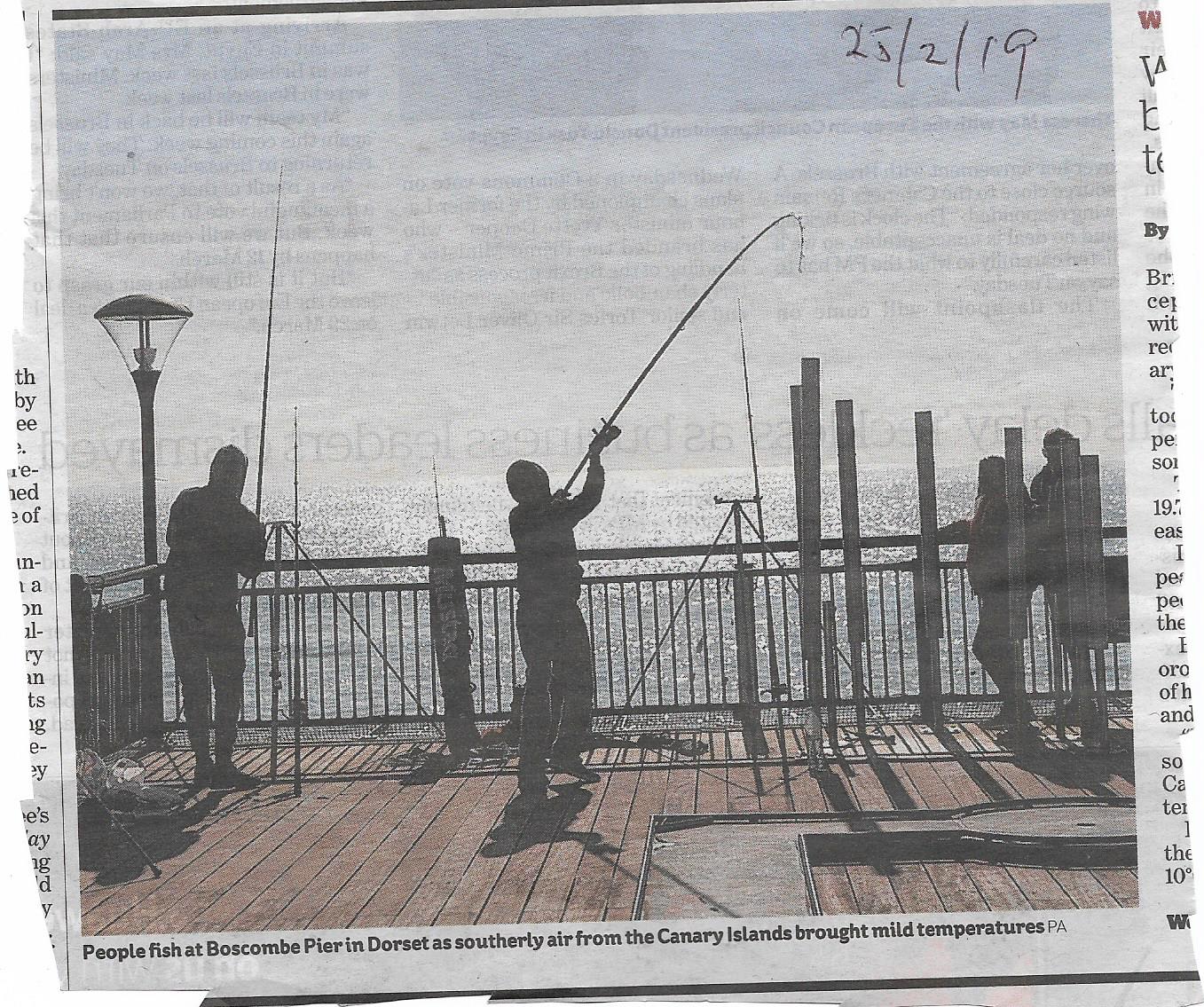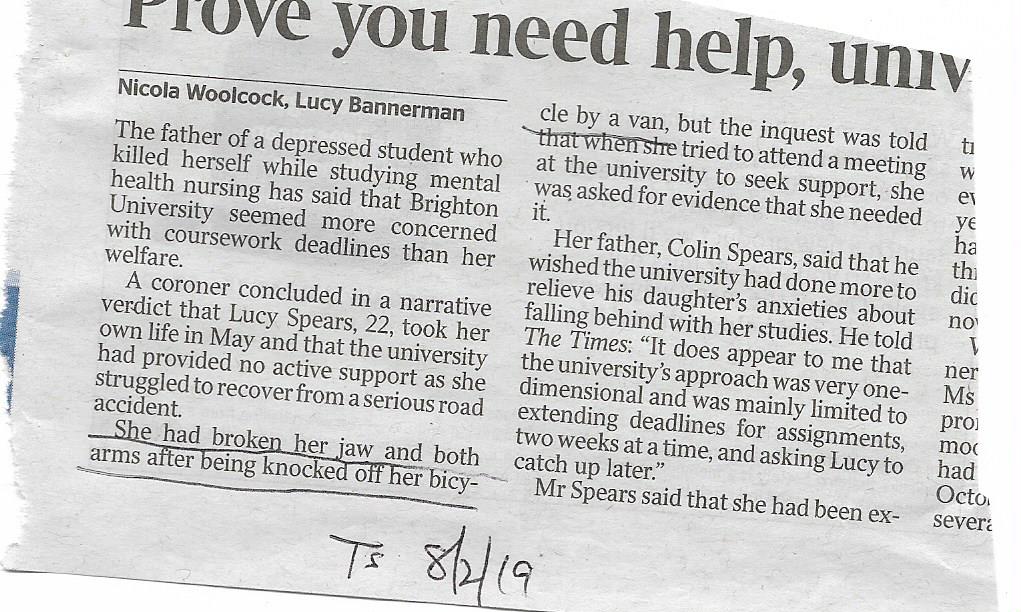
i newspaper, February 16, 2019 (56 words)
Where to start?
1. Do you think ‘Airport authorities in Hong Kong’ is going to make the reader keen to find out more?
2. If the men have been arrested but not convicted you should say they are alleged smugglers (as it does lower down). It is no excuse to say it is in Hong Kong so it doesn’t matter.
3. ‘Suspected’ is a word you would use for a possible criminal, not a rhino horn. The horns are not suspected of anything. You need to say ‘horns believed to be from rhinos’ or just say ‘rhino horns’ – I think you can take a gamble on the horns being pretty distinctive. I certainly can’t think of anything similar that might lead to confusion.
4. Is the weight really important? Can you imagine what 40 kg (88lb) of rhino horn looks like? Is the fact that there were 24 not enough?
5. Is it necessary to say the horns were ‘severed’? Might we otherwise assume the rhinos were still attached?
6. If it is a record haul as stated in the first sentence, it goes without saying that it was the largest seizure.
7. ‘What was’ is just about the ugliest construction in creation and here it is unnecessary.
8. Which is the better headline phrase: ’24 rhino horns’ or ‘$1m rhino horns’?
Looking up the story to find a few more facts I see that the BBC did it almost word for word the same way. So just lifted straight from agency copy.
This is how I would have done it:
$1m rhino horns
seized at airport
Twenty-four rhino horns worth $1million (£780,000) have been seized at Hong Kong airport. Two men travelling from South Africa to Vietnam were arrested on suspicion of smuggling the horns, the largest haul recorded in Hong Kong. Rhino horn is used in Vietnam in traditional medicine and more than 1,000 rhinos a year are killed in South Africa. (57 words)


 The Times, February 8, 2019
The Times, February 8, 2019